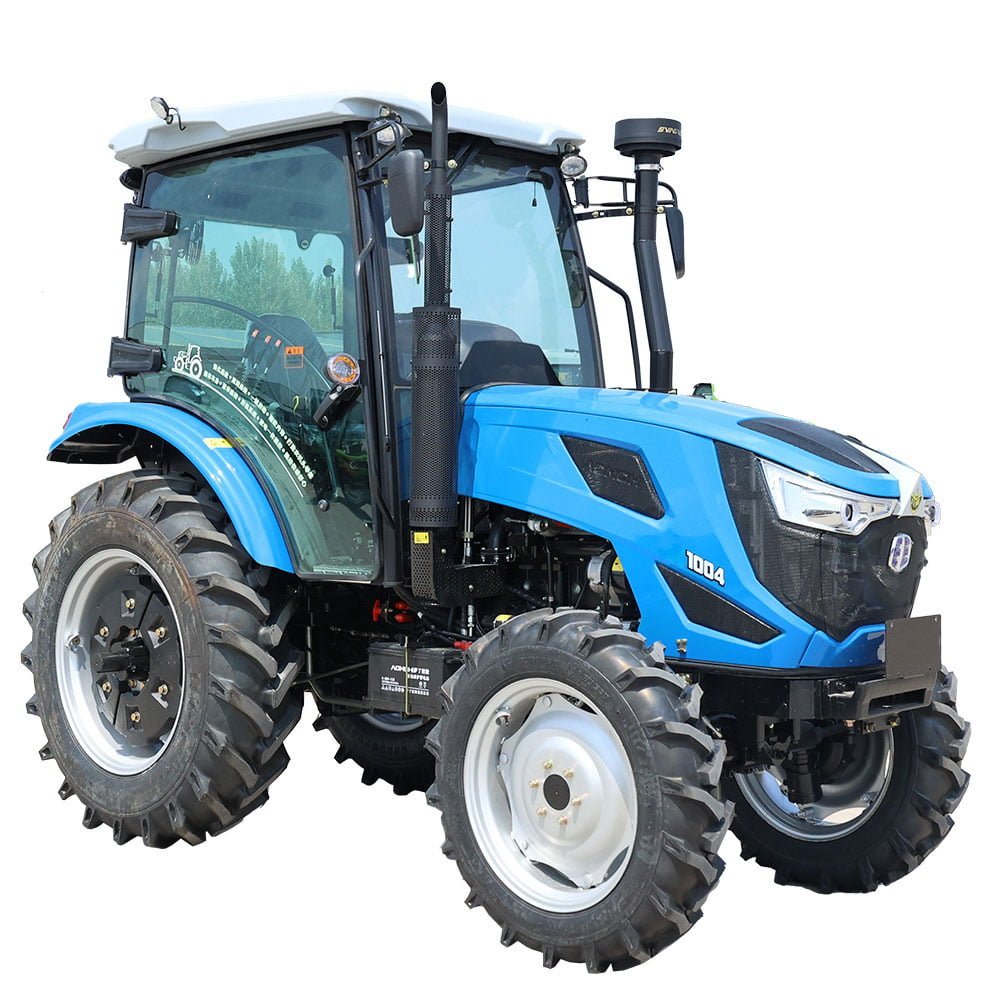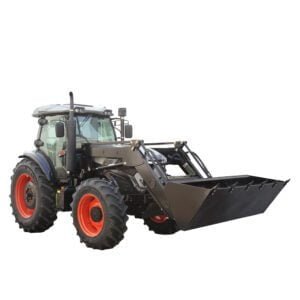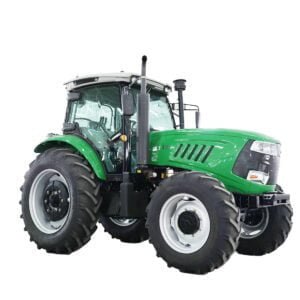E-mail: alamat email qilumachinery.com WhatsApp: 8618266768780
Cara Memilih Mesin Pertanian Traktor Terbaik untuk Pertanian Anda
Perkenalan
Memilih mesin pertanian traktor terbaik untuk pertanian Anda adalah keputusan penting yang dapat berdampak signifikan pada produktivitas dan efisiensi pertanian Anda. Dengan beragam pilihan yang tersedia di pasaran, penting untuk memahami faktor-faktor utama yang dapat membantu Anda membuat pilihan yang tepat. Panduan ini akan memberi Anda gambaran umum yang komprehensif, yang mencakup segala hal mulai dari memahami kebutuhan pertanian Anda hingga mengevaluasi fitur-fitur mesin tertentu. Apakah Anda seorang petani berpengalaman atau pendatang baru di sektor pertanian, panduan ini akan membekali Anda dengan pengetahuan untuk membuat keputusan terbaik bagi operasi pertanian Anda.
Understanding Your Farm’s Needs

Before diving into the specifics of tractor agricultural machinery, it’s essential to evaluate your farm’s unique requirements. This step is fundamental because the right machinery can significantly enhance productivity, while the wrong choice can lead to inefficiencies and increased costs. Consider the following aspects to ensure you select the best equipment for your farm:
Ukuran Ladang
The size of your farm is a critical factor in determining the type and scale of machinery you need. For large farms, more powerful and robust tractors are necessary to cover extensive areas efficiently. These tractors often come with advanced features and higher horsepower to manage significant workloads. In contrast, smaller farms might benefit from compact tractors that are more maneuverable and cost-effective, suitable for tasks like mowing, tilling, and light hauling.
Crop Type
Different crops require specific types of tractor agricultural machinery. For instance, row crops like corn and soybeans might need machinery designed for precise planting, spraying, and harvesting in rows. On the other hand, orchards and vineyards require specialized equipment that can navigate between closely planted trees and vines without causing damage. Understanding the particular needs of your crops will help you choose machinery that optimizes yield and minimizes labor.
Soil Conditions
Soil type and conditions play a significant role in machinery selection. Heavy, clay-rich soils may require more powerful tractors with strong traction capabilities to plow and till effectively. Sandy or loamy soils, which are easier to work with, might not need as much power. Additionally, consider the terrain of your farm; hilly or uneven landscapes might necessitate tractors with better stability and specialized tires to prevent slippage.
Persyaratan Tugas
Identifying the primary tasks you need the tractor to perform is crucial. Common tasks include plowing, planting, spraying, harvesting, and hauling. Some tractors are designed to handle multiple tasks with various attachments, making them versatile and valuable for farms with diverse needs. For specialized tasks, such as baling hay or applying fertilizers, you might need dedicated machinery that ensures efficiency and precision.
Labor Availability
Consider the availability and skill level of your labor force. If you have experienced operators, you might opt for advanced machinery with sophisticated controls and features. However, if your labor force consists of less experienced workers, simpler, more user-friendly machinery might be a better choice to reduce the learning curve and potential for errors.
Keterbatasan Anggaran
Budget is always a crucial consideration. While it’s tempting to go for the latest and most advanced machinery, it’s essential to balance features and affordability. Look for machinery that offers the best value for money, considering both the initial purchase price and ongoing maintenance costs. Financing options and used machinery can also be viable solutions to stretch your budget further.
Long-Term Goals
Think about your long-term farming goals. Are you planning to expand your farm or diversify your crops? Investing in scalable and versatile machinery can save you from frequent upgrades and replacements. Machinery that can adapt to changing needs will support your farm’s growth and evolving operational requirements.
Integrasi Teknologi
Modern tractor agricultural machinery often comes equipped with advanced technologies like GPS guidance, automated steering, and data analytics capabilities. These features can significantly enhance precision, efficiency, and productivity. Assess the technological infrastructure of your farm and your willingness to integrate these innovations. While they may come with higher upfront costs, the long-term benefits in terms of yield and efficiency can be substantial.
Pertimbangan Lingkungan
Sustainability is becoming increasingly important in agriculture. Consider machinery that is environmentally friendly, with features that reduce fuel consumption and emissions. Sustainable practices not only benefit the environment but can also improve your farm’s reputation and compliance with regulatory standards.
Jenis-jenis Traktor Mesin Pertanian
Tractor agricultural machinery is a broad category encompassing various types of equipment, each designed to perform specific functions essential to modern farming. Understanding the different types of machinery available and their unique features will help you select the right tools to meet your farm’s needs efficiently. Here’s a detailed look at the common types of tractor agricultural machinery:
Traktor Serbaguna
Utility tractors are versatile machines commonly used for general farm work. They are the backbone of many farming operations due to their ability to perform a wide range of tasks. Utility tractors typically have moderate horsepower, making them suitable for plowing, tilling, hauling, and operating various attachments like mowers, loaders, and backhoes. Their adaptability makes them ideal for small to medium-sized farms where multiple tasks must be accomplished without investing in multiple specialized machines.
Traktor Tanaman Baris
Row crop tractors are specifically designed for the precise work required in row crop farming. They feature high clearance and adjustable track widths, allowing them to navigate between rows of crops without damaging the plants. These tractors are equipped with advanced steering systems and are often used for planting, cultivating, and harvesting row crops like corn, soybeans, and cotton. Their precision and ability to handle delicate tasks make them invaluable for maximizing yield and ensuring the health of the crops.
Orchard Tractors
Orchard tractors are specialized machines designed for use in orchards and vineyards, where space between trees and vines is limited. They are typically narrow and have a low profile, allowing them to maneuver easily without damaging branches or fruit. Orchard tractors are used for tasks such as spraying, mowing, and transporting harvests. Their compact design and specialized features help improve efficiency in orchards and vineyards, where conventional tractors might struggle to operate effectively.
Traktor Kompak
Compact tractors are smaller, lighter, and more maneuverable than their larger counterparts. They are perfect for small farms, gardens, and landscaping projects. Despite their size, compact tractors are powerful enough to perform various tasks, including mowing, digging, and hauling. They often come with multiple attachment options, such as front-end loaders, backhoes, and snow blowers, making them incredibly versatile. Compact tractors are an excellent choice for hobby farmers, small-scale operations, and residential use.
Traktor Sub-Kompak
Sub-compact tractors are even smaller than compact tractors but still pack a significant punch. They are designed for homeowners with large gardens or small acreage who need a reliable machine for light-duty tasks. Sub-compact tractors are easy to operate and maintain, making them suitable for those new to tractor use. They are commonly used for mowing, light grading, and landscaping. Their small size allows them to navigate tight spaces where larger tractors cannot go.
Four-Wheel Drive (4WD) Tractors
Four-wheel drive tractors provide enhanced traction and stability, making them suitable for challenging terrains and heavy-duty tasks. These tractors are ideal for use on hilly or uneven land, where extra power and control are necessary. The 4WD capability ensures that all four wheels receive power, reducing the risk of getting stuck in muddy or loose soil. They are often used for plowing, tilling, and other intensive fieldwork, offering superior performance in difficult conditions.
Traktor Khusus
Specialty tractors are designed for specific tasks or environments. These include high-clearance tractors for working with tall crops, low-profile tractors for working in confined spaces, and tractors equipped with tracks instead of wheels for improved performance in muddy or soft soil conditions. Specialty tractors are tailored to meet unique agricultural challenges, providing solutions that standard tractors may not be able to offer. They are essential for farmers with niche requirements or those working in unique environments.
Industrial Tractors
Industrial tractors are built for heavy-duty tasks beyond typical farm work. They are often used in construction, forestry, and other industries requiring powerful machinery for tasks such as grading, excavating, and heavy lifting. Industrial tractors are robust, with reinforced frames and powerful engines, designed to handle extreme conditions and demanding jobs. While not commonly used in traditional farming, they play a crucial role in agricultural settings where large-scale infrastructure projects or land development are necessary.
Two-Wheel Drive (2WD) Tractors
Two-wheel drive tractors are the most common type used on smaller farms and for lighter tasks. They are generally less expensive and easier to maintain than their four-wheel-drive counterparts. These tractors are suitable for flat, dry terrain and are typically used for mowing, light tilling, and transport tasks. While they may not offer the same level of traction and versatility as 4WD tractors, their affordability and simplicity make them a popular choice for many farmers.
Traktor Jalur
Track tractors, equipped with continuous tracks instead of wheels, provide superior traction and reduced soil compaction, making them ideal for large-scale farming operations on soft or uneven ground. They are particularly useful in wet conditions where wheeled tractors might struggle. Track tractors distribute weight more evenly, minimizing damage to the soil structure, which is crucial for maintaining soil health and crop productivity. They are often used for plowing, planting, and heavy-duty hauling tasks.
Evaluating Machinery Features
When selecting tractor agricultural machinery, it’s important to consider specific features that can affect performance, efficiency, and usability. These features can vary widely between models and manufacturers, making it essential to understand what each feature offers and how it aligns with your farming needs. Here’s an in-depth look at the crucial features to evaluate when choosing tractor agricultural machinery:
Tenaga dan Performa Mesin
The engine is the heart of any tractor, and its power is measured in horsepower (HP). The amount of horsepower required depends on the tasks you plan to perform and the size of your farm. Higher horsepower engines are necessary for heavy-duty tasks such as plowing large fields, hauling heavy loads, and operating complex attachments. Conversely, smaller farms and lighter tasks may not require as much power, allowing you to save on fuel and maintenance costs. Additionally, consider the engine’s fuel efficiency and emissions standards, as these can impact both operating costs and environmental sustainability.
Jenis Transmisi
The type of transmission in a tractor can significantly affect its operation and ease of use. There are several types of transmissions available, each with its advantages:
- Transmisi Manual: Offers precise control over speed and power but requires more skill to operate.
- Automatic Transmission: Simplifies operation with automated gear shifting, making it easier for less experienced operators.
- Transmisi Hidrostatik: Provides smooth and infinite speed adjustments without the need for clutching, ideal for tasks requiring frequent speed changes.
Hidrolika dan PTO (Power Take-Off)
Hydraulic systems are essential for operating attachments like loaders, backhoes, and mowers. The hydraulic capacity of a tractor, measured in gallons per minute (GPM), determines the power available to these attachments. A higher GPM rating means more powerful and responsive hydraulic performance. The Power Take-Off (PTO) system is another critical feature, enabling the tractor to transfer engine power to various implements. Different tractors come with different PTO configurations (e.g., rear PTO, mid PTO), so choose one that matches the requirements of your attachments.
Kenyamanan dan Ergonomi
Operator comfort is a crucial aspect that directly influences productivity. Modern tractors come with various features designed to enhance comfort and reduce fatigue during long hours of operation:
- Desain Kabin: Enclosed cabs provide protection from weather, noise, and dust, often featuring climate control for added comfort.
- Seating: Adjustable, cushioned seats with suspension systems help reduce operator fatigue.
- Controls Layout: Intuitive and easily accessible controls improve ease of use and reduce the learning curve for new operators.
- Visibilitas: Large windows and well-designed cab layouts offer better visibility, enhancing safety and efficiency.
Lampiran dan Fleksibilitas
The ability to use a wide range of attachments can significantly increase a tractor’s versatility. Evaluate the compatibility of the tractor with various implements such as plows, harrows, seeders, sprayers, and loaders. Quick-attach systems make it easier to switch between attachments, saving time and effort. Some tractors come with integrated technology that enhances the functionality of specific attachments, such as precision planting systems or automated steering for tillage.
Integrasi Teknologi
Modern tractors often come equipped with advanced technological features that can improve efficiency, precision, and productivity. Some of these features include:
- GPS and Guidance Systems: Help with accurate planting, fertilizing, and spraying by providing real-time location data and automated steering.
- Telematika: Allow remote monitoring of tractor performance, maintenance needs, and operational efficiency.
- Data Analytics: Integrated systems that collect and analyze data to optimize farming practices and improve decision-making.
- Otomatisasi: Advanced models offer semi-autonomous or fully autonomous operation capabilities, reducing the need for constant operator input.
Kualitas dan Daya Tahan Bangunan
The build quality and durability of a tractor are essential for long-term performance and reliability. Look for tractors with robust frames, high-quality materials, and a reputation for durability. Consider the warranty and the availability of spare parts and service centers, as these can significantly affect maintenance costs and downtime. Tractors from reputable brands often come with comprehensive warranties and better support networks, ensuring you can get the necessary repairs and parts when needed.
Fitur Keamanan
Safety is paramount in any agricultural operation. Evaluate the safety features of the tractor, including:
- ROPS (Roll-Over Protection Structure): Protects the operator in the event of a rollover.
- Sabuk Pengaman: Essential for securing the operator.
- Safety Lights and Reflectors: Improve visibility during low-light conditions.
- Mati Darurat: Allows the operator to quickly stop the tractor in case of an emergency.
Cost and Value for Money
While evaluating features, it’s also crucial to consider the overall cost and value for money. This includes the initial purchase price, operating costs (fuel, maintenance, repairs), and the tractor’s expected lifespan. A higher initial investment in a well-built, feature-rich tractor can pay off in the long run through increased productivity, lower maintenance costs, and better resale value. Financing options and cost-saving features such as fuel efficiency and low maintenance requirements can also influence the overall value.
Dampak Lingkungan
As sustainability becomes increasingly important, consider the environmental impact of the tractor. Look for models that comply with current emissions standards and offer eco-friendly features such as fuel-efficient engines and advanced emissions control systems. Sustainable tractors not only reduce your farm’s environmental footprint but may also qualify for government incentives or subsidies.
Comparing Brands and Models

With numerous brands and models available, comparing their specifications and features is crucial. Conducting thorough research and reading customer reviews can provide valuable insights.
Top Brands:
- Perusahaan John Deere: Known for durability and advanced technology.
- Qilu: Offers a wide range of compact and utility tractors.
- Massey Ferguson: Renowned for robust and reliable machinery.
- Belanda Baru: Provides innovative solutions for modern farming.
Pemeliharaan dan Dukungan
Proper maintenance is crucial to ensure the longevity and efficiency of your tractor agricultural machinery. Additionally, having access to reliable support services can save you time and money in the long run.
Maintenance Tips:
- Inspeksi Reguler: Check for wear and tear and replace parts as needed.
- Servis Terjadwal: Follow the manufacturer’s service schedule.
- Penyimpanan yang Tepat: Store machinery in a sheltered area to protect it from the elements.
Support Services:
- Dukungan Dealer: Access to spare parts and expert technicians.
- Online Resources: Manuals, tutorials, and troubleshooting guides.
- Warranty Options: Extended warranties for additional protection.
Pertimbangan Lingkungan
Modern farming practices increasingly emphasize sustainability and environmental responsibility. Choosing eco-friendly tractor agricultural machinery can help reduce your farm’s environmental impact.
Eco-Friendly Features:
- Efisiensi Bahan Bakar: Machinery that uses less fuel reduces carbon emissions.
- Standar Emisi: Compliance with local and international emissions regulations.
- Bahan Berkelanjutan: Use of recyclable and durable materials in construction.
Kesimpulan
Choosing the best tractor agricultural machinery for your farm involves careful consideration of various factors, including your farm’s specific needs, machinery types, features, brands, costs, maintenance requirements, and environmental impact. By taking the time to evaluate these aspects, you can make an informed decision that enhances your farm’s productivity and sustainability. Investing in the right machinery not only improves operational efficiency but also contributes to the long-term success of your farming business.
Tanya Jawab Umum
What is the most important factor to consider when choosing traktor mesin pertanian?
The most important factor is understanding your farm’s specific needs, including the size of the farm, the type of crops grown, and the tasks required.
How do I determine the right engine power for my tractor?
Engine power should be based on the tasks you need the tractor to perform. Larger farms and more demanding tasks require higher horsepower.
Are there financing options available for purchasing traktor mesin pertanian?
Yes, many manufacturers and dealers offer financing options, including loans, leases, and installment plans.
Seberapa sering saya harus menyervis traktor saya?
Follow the manufacturer’s recommended service schedule, typically every 200-300 hours of operation or annually.
What are the benefits of choosing eco-friendly tractor machinery?
Eco-friendly machinery reduces fuel consumption and emissions, contributing to environmental sustainability and potentially lowering operating costs.
Tentang Kami
Shandong Qilu Industrial Co., Ltd. adalah produsen dan eksportir profesional yang mengintegrasikan pengembangan dan produksi ekskavator, loader, dan traktor. Kami memberikan layanan terbaik, tentu saja.
Tulisan Terbaru
Video demo
-1.png)
Hubungi Kami Hari Ini!
Ada pertanyaan, penawaran, atau permintaan? Klik tombol untuk mengirim pesan.
Qilu Industrial akan selalu siap membantu.









